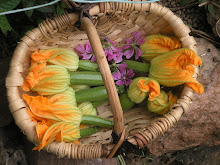The ethic of Project Hope is a good one: bring free language lessons to those that most need it and cannot afford it, here in Palestine, by welcoming volunteers from all over the world who are willing to spend some of their time in this fascinating part of the world.
I found out recently that it's the biggest NGO (Non-Governmental Organisation) in Nablus, and was the only one to remain functioning during the Intifada. Unlike a lot of NGO's, or UN Offices, there are no fancy cars, no flashy expense accounts and no jolly-ups. What I was expecting before I came has turned out to be true 'on the ground' as it were, and I think they are doing a great job.
They do not affiliate with either political party here, and try to stay focussed on the objective of bringing the outside world here whilst at the same time giving the children of Palestine contact with the wider world. There is a 'blog club' for children, getting young kids here (who like kids everywhere are computer literate) in contact with kids elsewhere, in schools and youth clubs.
There are art classes, where the work done in the classroom is transferred to large wall murals and playgrounds, and there are drama and music classes. One teacher who used to work for Project Hope has found a paying job in the town, and now works 6 hours a week and is able to support himself on that. He's also trying to get a music school going.
Recently PH received a donation of some brand-new computers. This was a very generous gift on the part of someone, but in fact there were already enough computers, so they have been set-up in one of the classrooms, awaiting extra students who will use them. That's one of the things I've been surprised about: the internet access and mobile telephone prevalence: everyone is 'connected', and everyone is on Facebook!
Like so many organisations, however, they're feeling the pinch financially, and the Director said he'd rather have had the money to pay wages than the computers: there are four local paid staff, who co-ordinate everything. The local Authority, however, are always mindful of being accused of encouraging or harbouring undesirables, so cash donations are frowned upon. As a consequence Project Hope, like so many other grass-roots organisations, struggles on from month to month.
There is a book wish-list, on Amazon, for books that they'd like to receive and which get put in the Library. Self-appointed Librarian: yours truly, and I've very much enjoyed sorting through all of the books, pamphlets and leaflets, sorting the teaching material from the Palestinian information, the latter making grim reading with titles covering the gamut of information about life under occupation. Some shocking photographs in those booklets. Whole forests must have been cut down to write these voluminous tomes on torture, the wall, prison, water shortages, agriculture, etc. 60 years on...
The teaching books, however, are very welcome: they now have quite a well-stocked library with the classic titles that every TEFL teacher uses as a bible. There are books on teaching languages to children, ideas for games, songs, stories, creative writing, etc. There is quite a large section on French, language and literature, and with the French Cultural Centre next-door, it has been a real boon to speak French. Some of the local volunteers have decided to focus on French as opposed to English as their second language, so I can happily chat to both sides. One local volunteer is learning Hebrew. When I made a polite request as to why, he told me he had been in prison 9 times and thought it about time he learnt what he was being accused of.
Anyway, after one particularly interesting conversation with the Director, we at Le Guerrat have come up with a project proposal: to have a pre-Palestine training week for Internatioanl volunteers at our house, to include a briefing on Project Hope, the situation here, things they should think about, plus TEFL training, lesson plans and teacher role-play. I think Le Guerrat lends itself to such a course, and although logistically and financially it may be problematic, the Director and I thought that it would be useful for the volunteers to have a good idea of what is expected of them before they arrive. That way they could hopefully arrive in Nablus ready to teach, and with less culture shock. I was surpised to find out, during the interviews I've been conducting, that for many this is their first experience of an Islamic culture, and some volunteers are as young as 20.
Wednesday, December 1, 2010
Subscribe to:
Post Comments (Atom)

No comments:
Post a Comment